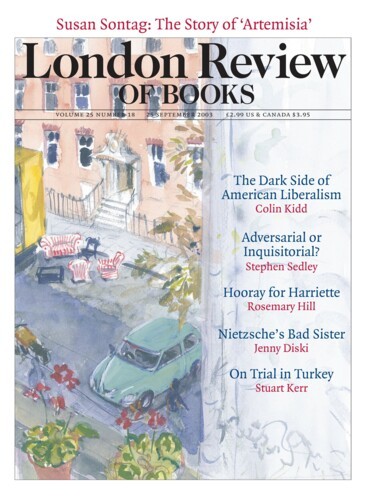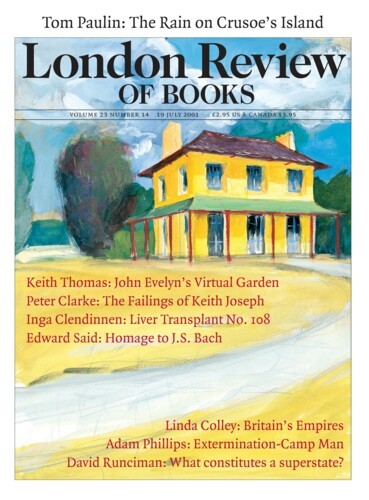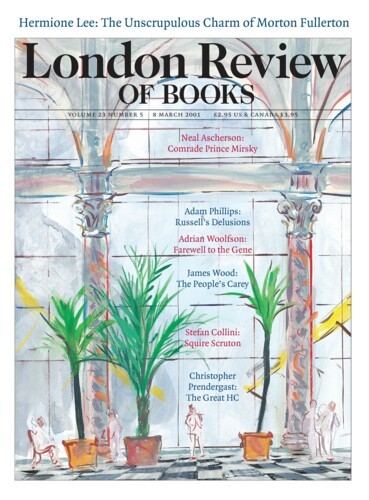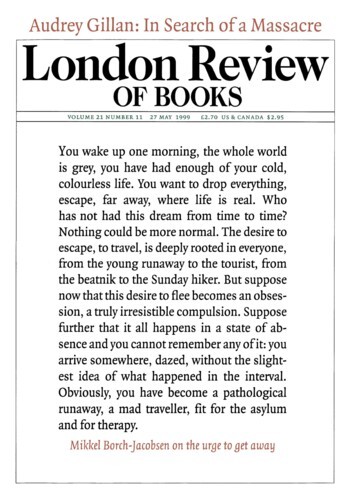Smut-Finder General: The Dark Side of American Liberalism
Colin Kidd, 25 September 2003
“Relocating the Puritan ancestors from folksy Thanksgiving remembrance to a place of honour (or dishonour) as the principal begetters of the American way of doing politics, [Morone] proposes that Puritan ideals loom large behind the ‘zero-tolerance’ version of liberalism. The Puritans first conjured up the notion of America as a redeemer nation with a sacred mission, popularised the jeremiad – a sermon of complaint against backsliding and declension – which would become in time ‘a kind of American anthem’, and set precedents for the harsh treatment of demonic otherness.”





